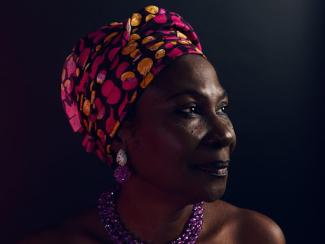
Calling an older Black woman who isn’t related to you “Auntie” has become a common staple in Black culture these days. Where did doing this even come from?
Enslavers couldn’t be bothered to learn, much less use, Black women’s names. As long as we were their mammies, all was cool with them. Fast forward to Jim Crow, and the disrespect of Black women continued. There was a racial etiquette. “Miss” and “Missus” were terms of respect for women — unless they were Black.
The term “auntie” became a way to minimize the importance of Black women, especially if they were older. Calling Black women “auntie” connoted inferiority. It may have been a holdover from enslavement and Jim Crow, but recently the term started taking on a new meaning.
Like other derogatory words aimed at us, we’ve reclaimed the term “auntie.” There are arguments within the community for and against its use. Ultimately, though, many of us use it as a term of respect and affection.
Reclaiming words isn’t just a matter of repurposing a derogatory term used against us. It is a power move. Something seemingly so small and subtle chips away at whatever tenuous hold oppressors held. How can we take power from oppressors in more expansive ways?